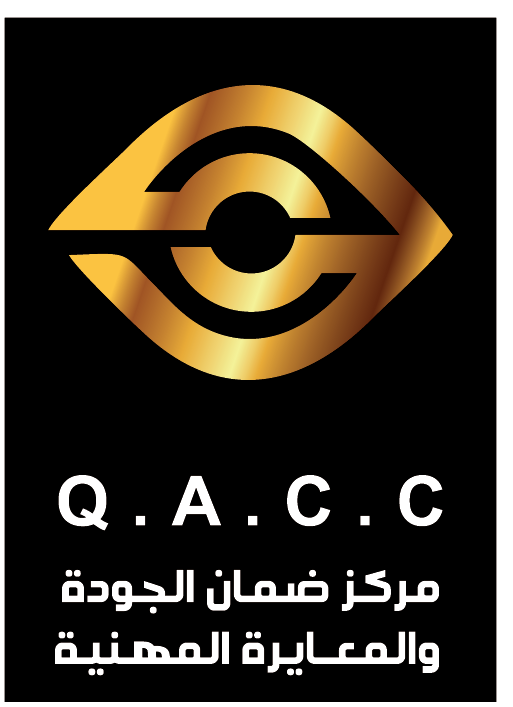- 00218214813322
- info@qacc.ly.com
- Mon - Fri: 9:00 - 18:30
Quality Assurance and Certifications Centre Q.A.C.C
Background
The Centre was created by the decree No. (36) of 2005 by the former general people’s committee for manpower, training and employment under the name of (Human Resources Development and Certifications Centre). In 2009, the Centre became part of the National Council for Economic Development of the former general people’s committee. The Centre was restructured under the name of (Quality Assurance and Certification Centre) by the decree No. (522) of 2009 of the former general people’s committee. In 2019, the ministry of labour and capacity building was restructured when the centre became part of the ministry of labour and capacity building under the same name of (Quality Assurance and Certification Centre Q.A.C.C) under the decree No. 87 of 2012 of the Cabinet of Ministers.
Technical Departments
Occupational Skills and Classifications Department
This department carries out their activities through the following sections:
1. Occupational standards and classifications section
2. Specifications and standards of training programs section
Inspection and Quality Assurance Department
The Department exercises its functions through the following two sections:
1- Inspection and Quality Assurance Section
2- Training and Development Section
Accreditation and professional calibration department
The Department exercises its functions through the following two sections:
1- Professional Standards Section
2- Department of accreditation of training centers and programs
Training and administrative staff
For the Centre to achieve its objectives, forty-eight (48) training staff members and trainers received international training in the UK for one year and four months for capacity building purposes in different fields including leadership and management, teaching methods, assessment and quality assurance, preparation of occupational standards and certification of occupational centers. When the training staff came back to Libya, activities at the center continued under the supervision of international experts for two
years. The training staff received an intensive training program at the Centre supervised by the British Council under the auspices of the Ministry of Labour and Capacity Building. This training continued for two weeks on two shifts; morning and afternoon training with assessment tests carried out. The entire administrative staff received administrative skills development training in Jordan. This provides the administrative and staff of the Centre with the qualifications needed to design and deliver training programs, occupational standards, quality assurance, and practical training programs.
Facilities
Work towards excellence, creativity, and capacity building for human resources for a more promising future.
Message
For public and private occupational training, centers to have higher performance levels to be more competitive, locally, regionally and internationally, through the implementation of quality and efficiency systems and standards.
Vision
For occupational training institutions to have higher efficiency and qualification levels.
Facilities and equipment
The Centre is equipped with the latest equipment to ensure quality outputs. The Centre
is equipped with:
– Equipped halls for the delivery of occupational analysis workshops of
occupations and jobs
– Equipped halls for the delivery of training programs
– Computer Lab for the delivery of computer related training programs
– Internet is available in all the Centre’s facilities
– Safety and security system supported with CCTV and alarm system
– The Centre is also equipped with backup power supply system capable of
supplying power for the entire Centre.
Strategic Objectives
The objective of the Centre is to make a qualitative leap in quality assurance (QA),
standards, develop occupational skills and classifications, and capacity building of
technical and administrative staff specialized in the field of quality and certifications. The
Centre shall, in particular, conduct:
1- Certification and quality assurance of curricula and training methodology of
occupational training centres;
2- Certification of occupational training programs in response to local needs in line
with international standards, specifications and methodologies;
3- Supervision of the delivery of training programs for professionals to successfully
pass quality tests;
4- Development of standards and specifications necessary for occupational
classification and certification in line with the needs of the job market;
5- Granting occupation standardization certificates in line with internationally
applicable specifications and standardized procedures;
6- Analyze the performance of training and occupational centres, measurement of
performance quality levels, define shortcomings, if any, and necessary actions /
steps to overcome for the achievement of the required quality level;
7- Design training programs on inspection and quality assurance of training and
occupational centres to increase their efficiency in line with international
standards;
8- Inspection of training and occupational centres to ensure that they are in
compliance with standards set for their training programs;
9- Develop national occupational standards to ensure that occupational skills are in
line with the needs of job markets and latest updates of each occupation;
10- Develop national framework for occupational classification in line with Arab and
international practices;
11- Cooperate and coordinate with centres of similar activities, on local, Arab and
international levels, in accordance with rules and legislations;
12- Promotion of occupational thoughts through publications, researches; theoretical
and field studies, occupational studies, and translation of distinguished
researches related to occupational development;
13- Design training programs on inspection and quality assurance of training and
occupational centres to increase their efficiency in line with international
standards,
14- Collect and publish occupational and technical information.
